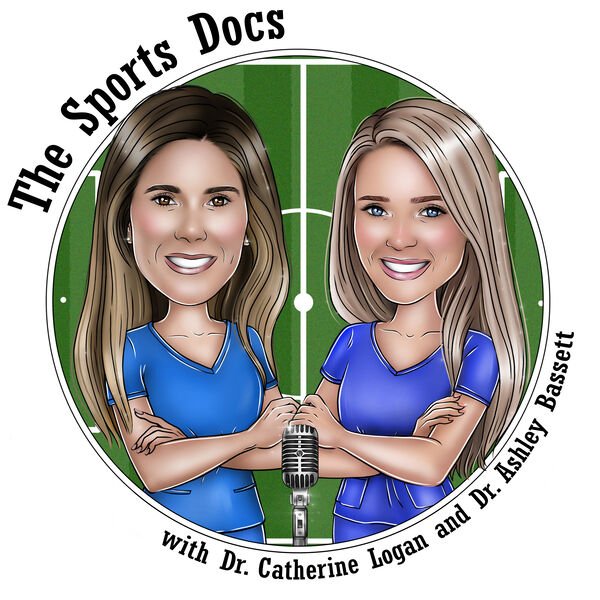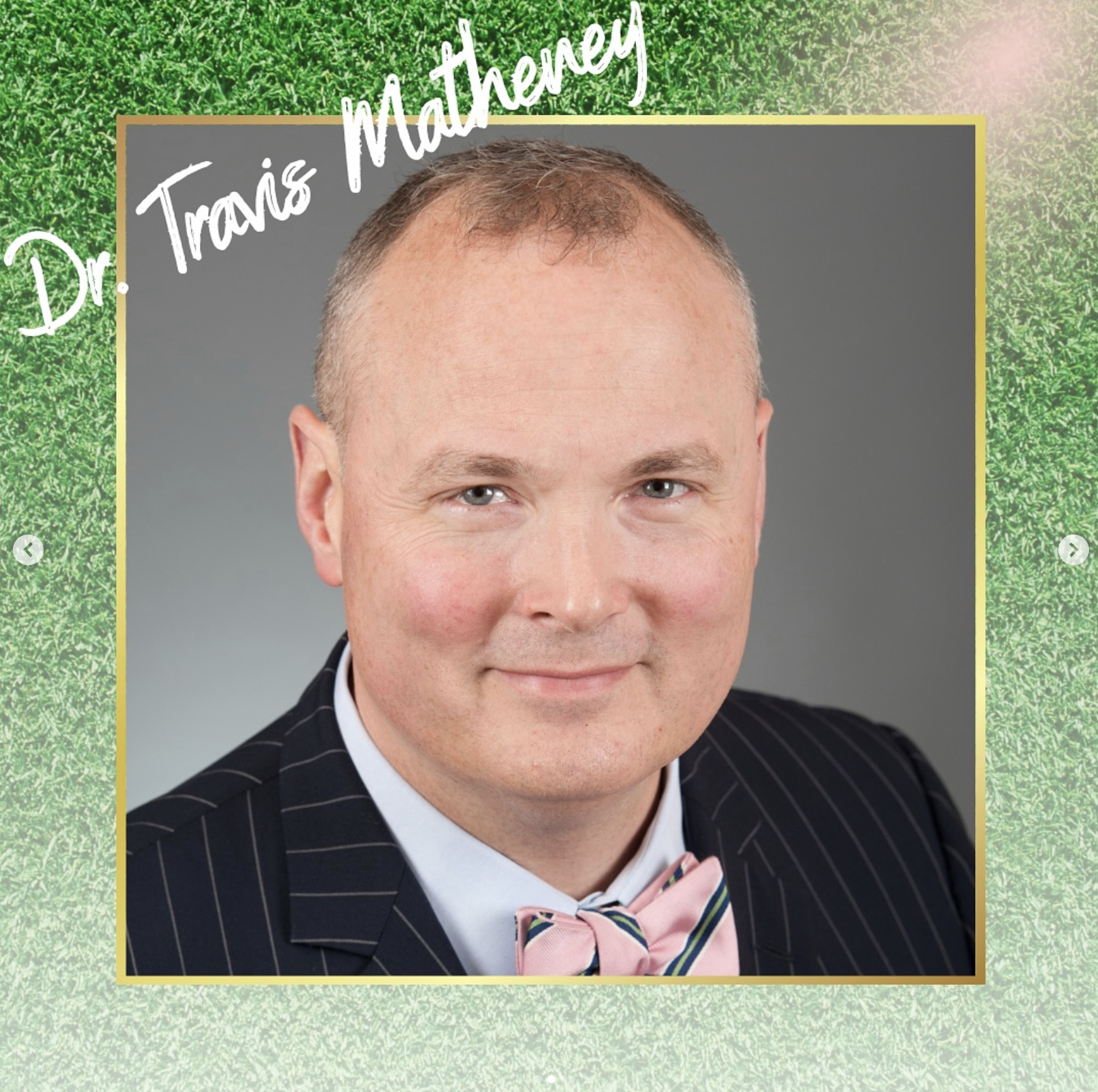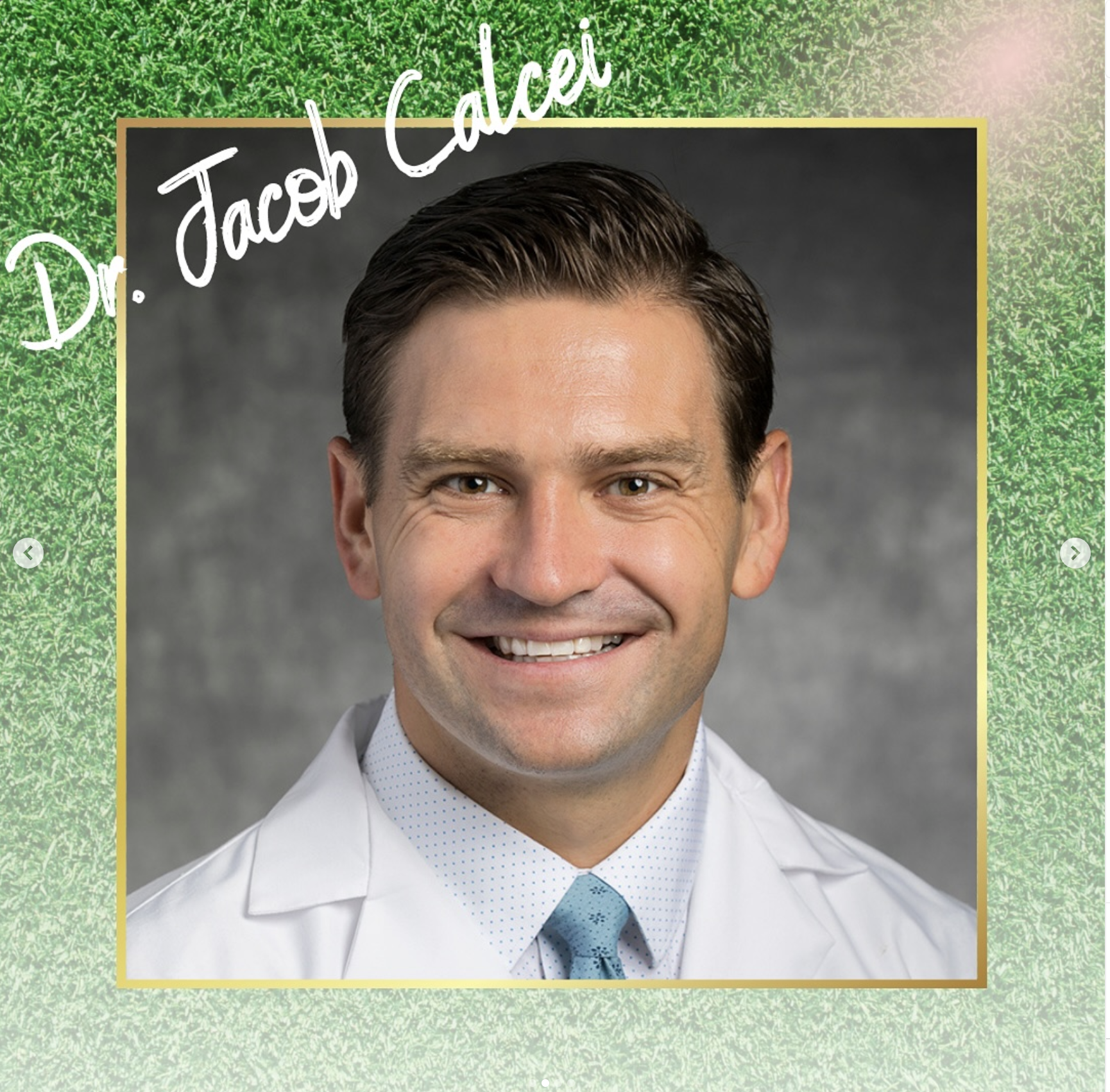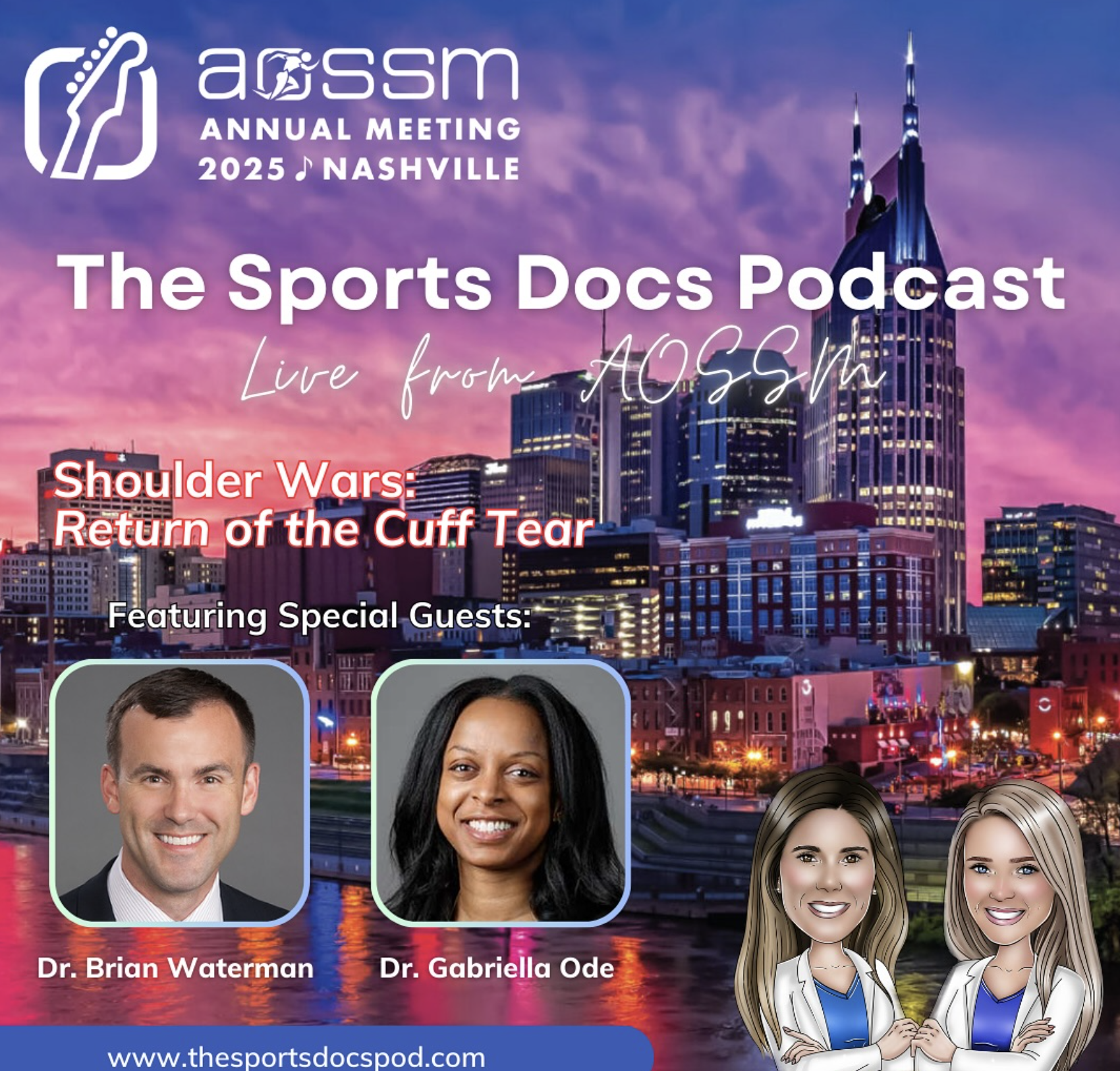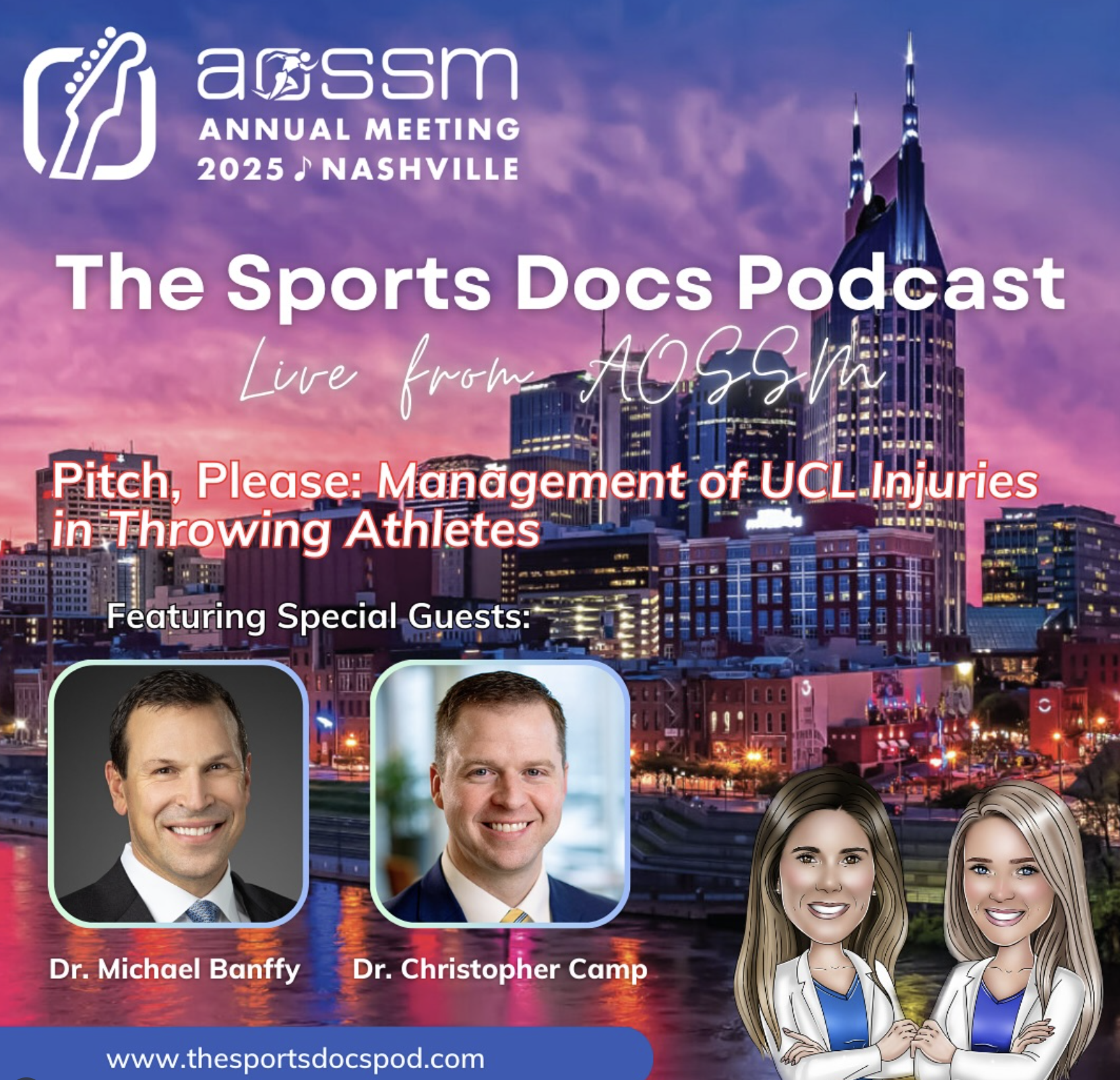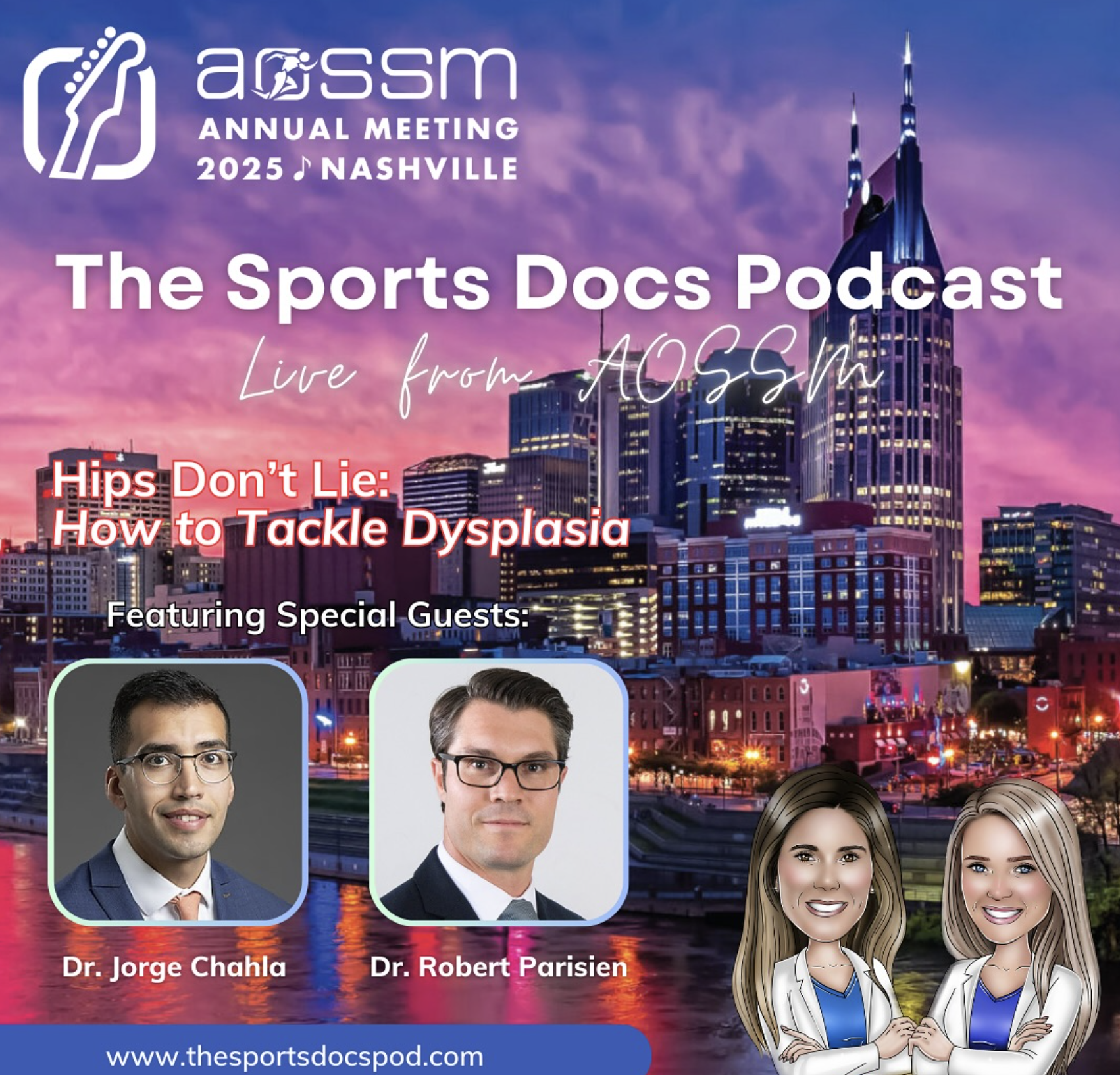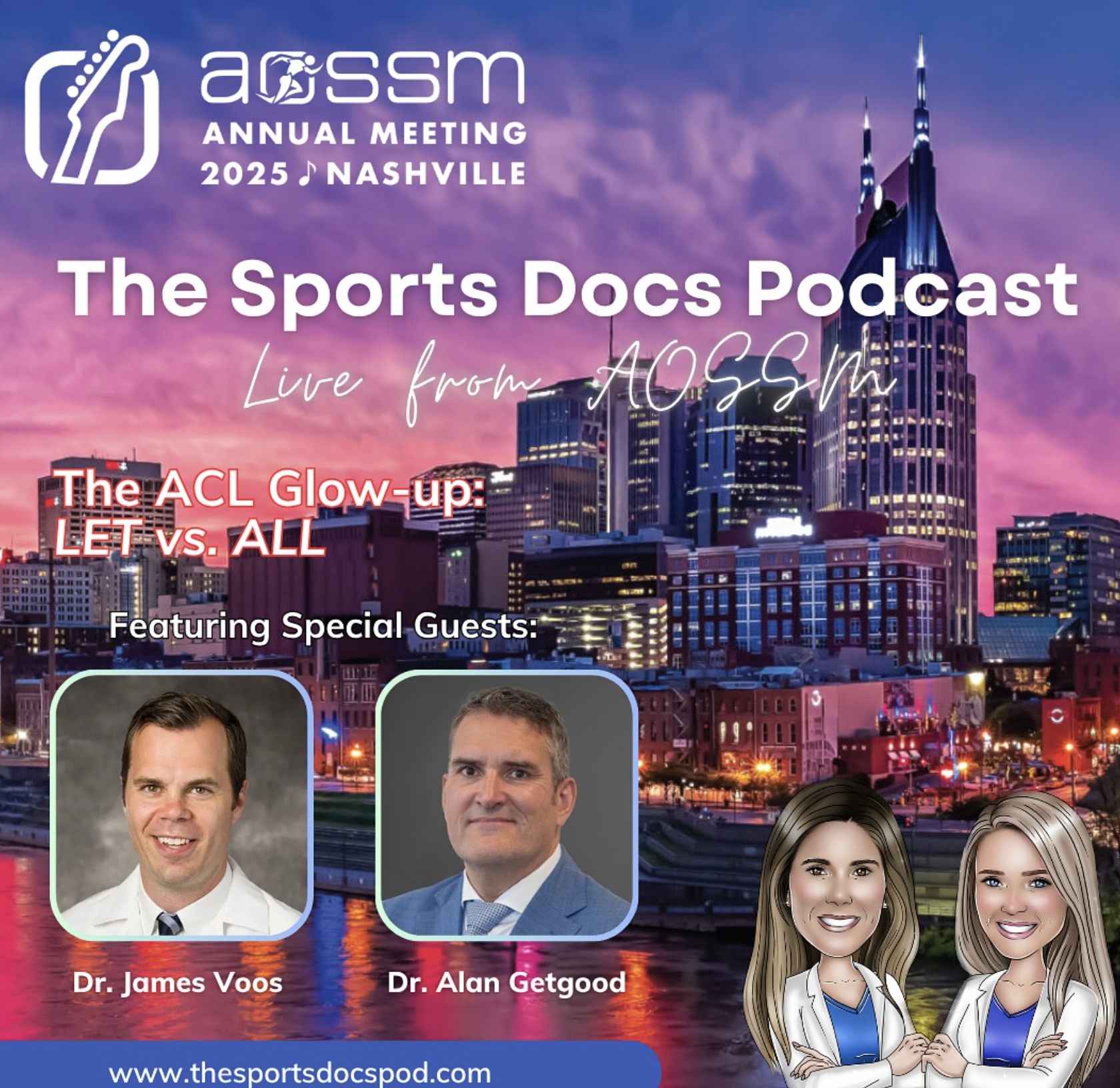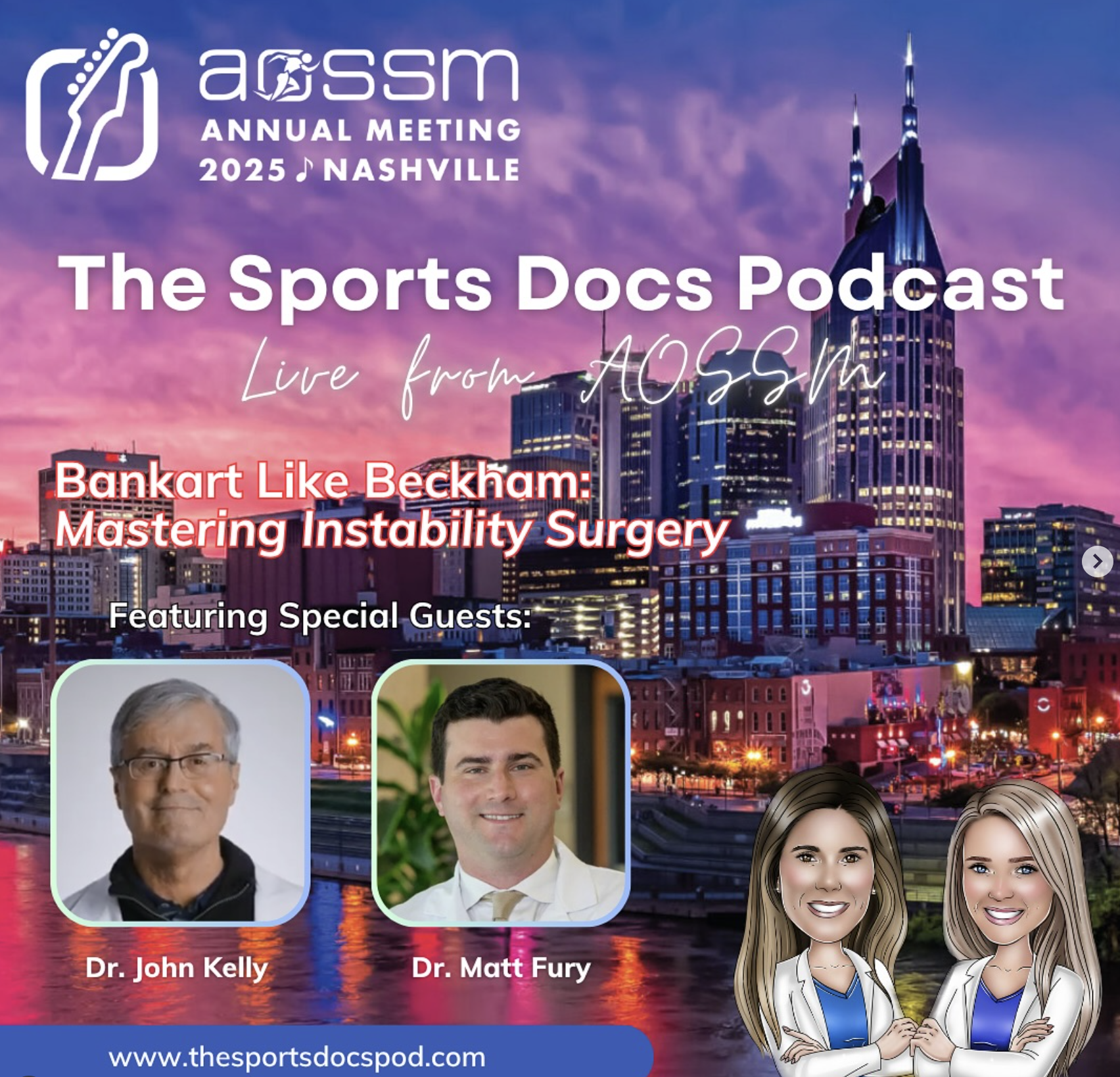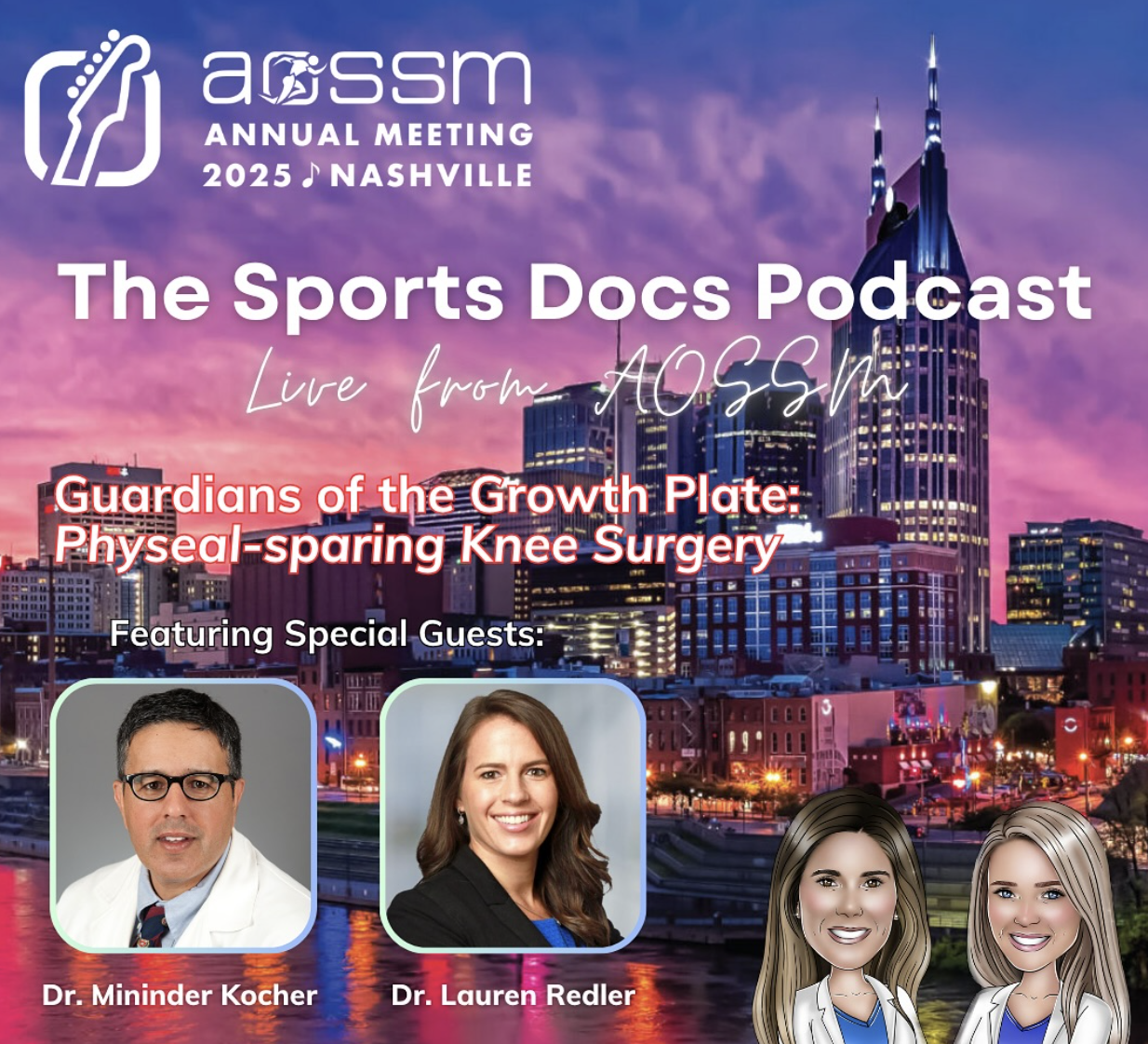Episode 153: Dr. Sara Edwards – The Thrower’s Shoulder (Part 2)
Our conversation picks back up with an article titled “Patient Outcomes and Return to Play After Arthroscopic Rotator Cuff Repair in Overhead Athletes.” This systematic review, published in the January 2023 issue of JOT, analyzed 20 studies comprising 692 patients with an average follow-up of 40 months. The authors found that arthroscopic cuff repair led to significant improvements in patient reported outcomes as well as improved shoulder elevation
Episode 152: Dr. Sara Edwards – The Thrower’s Shoulder (Part 1)
On today’s episode we’re focusing on the thrower’s shoulder with Dr. Sara Edwards, an orthopedic sports medicine and shoulder surgeon at UCSF. We have some great articles for you that contribute well to our conversation on different shoulder pathology in the overhead throwing athlete.
We start off our discussion today with a review article from the April 2023 issue of the yellow journal titled “Surgical Treatment of Superior Labral / Biceps Pathology in the Overhead Thrower.”
Episode 151: Why Did I Tear My ACL?
As you might remember from our episode on ACL graft choices, these Game Plan episodes are specifically designed for patients – to hopefully answer some of the questions you have about the most common sports medicine conditions and surgical treatments.
We’re continuing with our favorite topic today – ACL tears – but today’s episode is going to focus on risk factors for ACL tears. Specifically, which of these risk factors can we modify to lessen the chance of sustaining ACL tear and how do we decrease that risk.
Episode 150: Overtime: Cyclops Syndrome after ACL Reconstruction
Today, we’re talking about Cyclops Syndrome after ACL reconstruction surgery. We review an article published in this month’s issue of AJSM titled “Risk Profile for Cyclops Syndrome Necessitating Reoperation After Anterior Cruciate Ligament Reconstruction.” But first, let’s back up a bit and discuss the basics, starting with what Cyclops Syndrome is.
Episode 149: Game Plan – Hamstring Injury Severity and Time Missed in the NFL
Welcome to GamePlan with the Sports Docs. On each of these mini episodes, we chat about a new article or new surgical technique in the field of sports medicine. We’ll give you our quick take on the most recent data and how this data will be impacting our practice.
Today, we’re talking about hamstring injuries in the NFL. And if your fantasy team is anything like my fantasy team, it currently looks like an infirmary. So, you’ll probably want to listen in to this episode.
Episode 148: The Injury Report: Turf Toe / Cincinnati Bengals QB Joe Burrow
Today, we’re heading back to the NFL to discuss a surprisingly serious injury – turf toe. In Week 2 of the 2025 NFL season, Cincinnati Bengals quarterback Joe Burrow was sacked and sustained left great toe injury. This was ultimately diagnosed as a grade 3 turf toe injury requiring surgery. Burrow was placed on injured reserved and elected to undergo surgical repair. While the surgery reportedly went well, timing for return is uncertain, though initial estimates are around 3 months.
Episode 147: ATSD: Supplements, Palm Cooling and Bracing.. oh my!
We get lots of questions from our patients and our listeners each week - and they’re great questions, so rather than responding individually we thought we’d do these mini episodes. Today we will be tackling:
“What are the most studied and most effective supplements currently for sports medicine patients — both for performance and for injury recovery?”
“What’s the current evidence and your view on the NICE ROCC palm cooling device? Does it really enhance recovery or performance?”
“What’s the latest on bracing for shoulder dislocations when returning to sport? Are functional braces advisable, and in what role do they play?”
Episode 146: Injury Report: NFL WR Tyreek Hill Knee Dislocation
Today, we’re diving into one of the most serious injuries in American football, and that is a knee dislocation. Dolphins star wide receiver Tyreek Hill recently suffered a devastating knee injury in the Monday Night Football game versus the Jets. He dislocated his knee resulting in multiple torn ligaments, including his ACL. Tyreek was taken to the hospital directly from the game for further evaluation and ended up undergoing urgent surgery for ligament reconstruction and repair.
Episode 145: How to Win Your NFL Fantasy League
Welcome to another episode of Game Plan! These Game Plan episodes are specifically designed for patients – to hopefully answer some of the questions you have about the most common sports medicine conditions and surgical treatments. But today’s episode is a little different and we’re excited about it! Today, we’re focusing on common injuries in the NFL and how these injuries impact time missed and player performance once athletes ultimately return to play.
Episode 144: Dr. Travis Matheney – Management of Borderline Hip Dysplasia (Part 2)
In this episode, we’re going to continue our discussion with Dr. Travis Matheney and focus on surgical treatment options for borderline hip dysplasia.
Our conversation picks back up with a review article published in the December 2024 issue of Current Reviews in Musculoskeletal Medicine titled “Borderline Hip Dysplasia - Best Treated with Hip Arthroscopy or Periacetabular Osteotomy?”
Episode 143: Dr. Travis Matheney – Management of Borderline Hip Dysplasia (Part 1)
On today’s episode we’re focusing on the management of borderline hip dysplasia with Dr. Travis Matheney, a pediatric orthopedic surgeon at Boston Children's Hospital. We have some great articles for you that contribute well to our conversation on the treatment options for borderline hip dysplasia.
We’ll start off our discussion today with an article titled “Periacetabular Osteotomy Improves Pain and Function in Patients With Lateral Center-edge Angle Between 18° and 25°, but Are These Hips Really Borderline Dysplastic?”
Episode 142: Dr. Jacob Calcei – Wearable Technology for Athlete Performance & Injury Prevention (Part 2)
Our conversation picks back up with an article published just last month in AJSM titled “Player Tracking Metrics to Predict Risk of ACL Injuries During Change-of-Direction Scenarios in the NFL.” The authors analyzed 216 ACL injuries that occurred in the NFL from 2018–2022 to determine how player tracking data could help predict injury risk, particularly during change-of-direction or “CoD” plays. They found that nearly half of ACL injuries occurred during CoD scenarios, most often involving high speeds followed by rapid deceleration.
Episode 141: Dr. Jacob Calcei – Wearable Technology for Athlete Performance & Injury Prevention (Part 1)
On today’s episode we’re focusing on wearable technology for athlete performance, recovery and injury prevention with Dr. Jacob Calcei, an orthopedic surgeon at University Hospitals in Cleveland and team physician for the Cleveland Browns.
We’ll start off our discussion today with an article titled “Wearable Performance Devices in Sports Medicine” from the January 2016 issue of Sports Health. The authors review the rapid rise of wearable sensor technologies in athletics, highlighting their ability to track real-time physiologic and movement data for optimizing performance and reducing injury risk.
Episode 140: Dr. Gabriella Ode and Dr. Brian Waterman: Shoulder Wars: Return of the Cuff Tear (LIVE at AOSSM)
Today’s episode is going to focus on the management of rotator cuff retears — including tips and tricks for successful revision repair and augmentation options.
We are joined today by two outstanding guests! Dr. Brian Waterman is a Professor of orthopedic surgery at Wake Forest University School of Medicine, Chief of Sports Medicine & Shoulder Surgery at Wake Forest Baptist Medical Center and Director of the Sports Medicine & Shoulder Surgery Fellowship. He is on the editorial board of the Arthroscopy Journal and American Journal of Orthopaedics. Dr. Gabriella Ode is an orthopedic surgeon specializing in sports medicine and shoulder surgery at the Hospital for Special Surgery, Assistant Professor of orthopedic surgery at Weill Cornell Medical College and adjunct faculty with the Department of Bioengineering at Clemson University.
Episode 139: Dr. Michael Banffy and Dr. Christopher Camp: Pitch, please: Managing UCL Injuries in Throwing Athletes (LIVE at AOSSM)
Today’s episode is going to focus on the management of UCL injuries in throwing athletes.
We are joined today by two outstanding guests! Dr. Michael Banffy is a Professor of Orthopedic Surgery and Chief of Orthopedic Sports Medicine at Cedars-Sinai, as well as Director of the Orthopedic Sports Medicine Fellowship at Kerlan-Jobe. Dr. Christopher Camp is a board-certified orthopaedic surgeon specializing in sports medicine and shoulder and elbow surgery.
Episode 138: Dr. Jorge Chahla and Dr. Robert Parisien: Hips Don’t Lie: How to Tackle Dysplasia (LIVE at AOSSM)
Today’s episode is going to focus on addressing hip pathology in the setting of dysplasia — soft tissue management alone or with a periacetabular osteotomy.
We are joined today by two outstanding guests! Dr. Jorge Chahla is an Associate Professor of orthopedic surgery at Rush University Medical Center and serves as the Director of Biomechanical Research and Director of the International Fellowship Program at Midwest Orthopaedics at Rush. Dr. Robert Parisien is an Associate Professor of orthopedic surgery at Mount Sinai Orthopedics and is a team physician for US Ski and Snowboard and USA Fencing.
Episode 137: Dr. James Voos & Dr. Alan Getgood: The ACL Glow-up: LET vs. ALL (LIVE at AOSSM)
Today’s episode is going to focus on lateral augmentation procedures to supplement ACL reconstruction, including lateral extraarticular tenodesis versus anterolateral ligament reconstruction.
We are joined today by two outstanding guests! Dr. Alan Getgood is the Chief of Surgery at Aspetar and Adjunct Professor of orthopedic surgery at the University of Western Ontario. Dr. James Voos is a Professor of orthopedic surgery at Case Western Reserve University School of Medicine and Chairman of the orthopedics department at University Hospitals.
Episode 136: Dr. John Kelly and Dr. Matt Fury: Bankart Like Beckham: Mastering Instability Surgery (LIVE at AOSSM)
Today’s episode is going to focus on surgical management of primary and recurrent anterior glenohumeral instability in athletes.
We are joined today by two outstanding guests! Dr. John Kelly is a professor of orthopedic surgery at the University of Pennsylvania and Director of Shoulder Sports Medicine at UPenn Ortho. Dr. Matt Fury is an orthopaedic surgeon at the Baton Rouge Orthopaedic Clinic who specializes in sports-related injuries to the shoulder, elbow, and knee as well as complex shoulder conditions.
Episode 135: Dr. Mininder Kocher & Dr. Lauren Redler: Guardians of the Growth Plate: Physeal-sparing Knee Surgery (LIVE at AOSSM 2025)
Today’s episode is going to focus on ligament reconstruction in skeletally immature patients – including various growth plate sparing ACL reconstruction techniques, MPFL reconstruction considerations and clinical outcomes.
Episode 134: Dr. Dean Taylor & Dr. Kathy Coyner: Fractured Focus: Burnout in Orthopedic Surgery (LIVE at AOSSM 2025)
Today’s episode is going to focus on mental performance and burnout — specifically: What is burnout? What are some risk factors for burnout? And how do we prevent and treat burnout in orthopedic surgeons?
